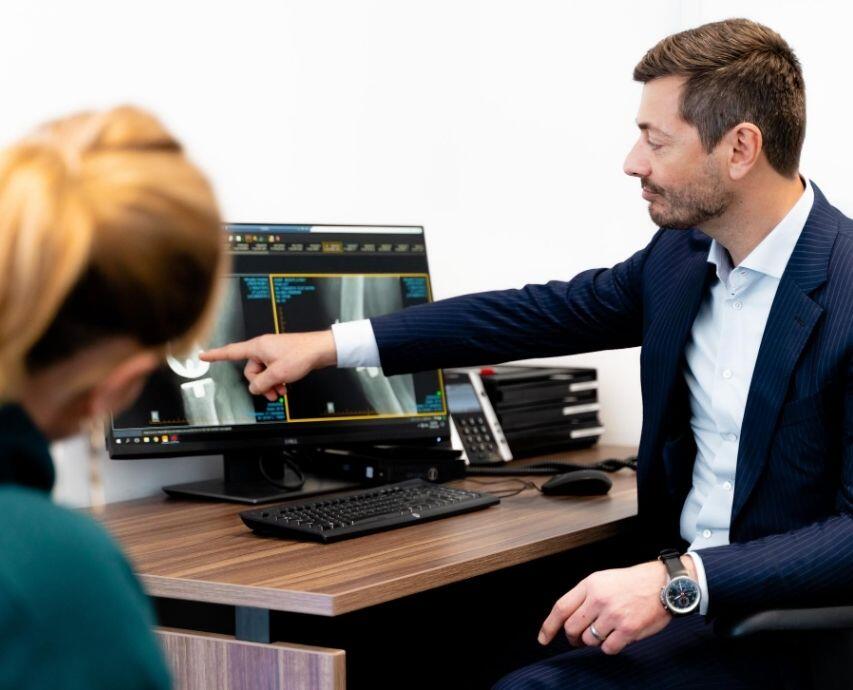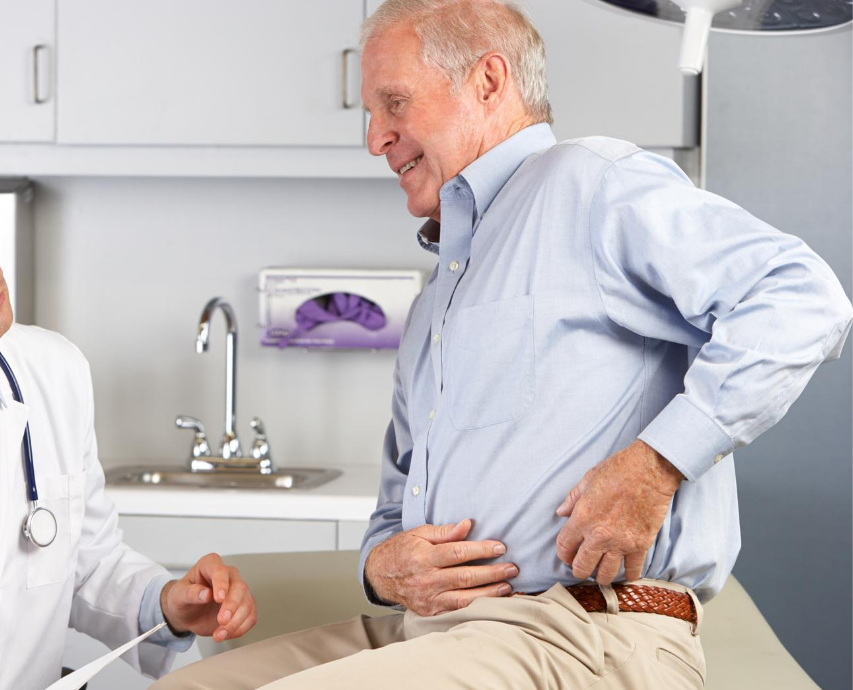The majority of surgical treatments that Dr Ward will discuss with you relate to a quality-of-life decision. Your decision to proceed with any surgery typically comes after you’ve tried to manage your condition without surgery, using simple measures such as pain relief, mobility aids, modified activity levels and physiotherapy. Dr Ward will discuss with you the option of surgery once these non-surgical measures have been exhausted.
Dr Ward will present surgery to you as a choice. Your decision to proceed (or not) with surgery will be presented as a ‘risk vs benefit’ consideration. You will need to decide how you perceive the possible risks associated with surgery, weighed up against the potential benefit you might gain from increased function following surgery.
All surgery involves a level of risk. Your risk profile will relate to your specific medical conditions and lifestyle. Issues like heart disease, diabetes, obesity and smoking will generally increase the risk associated with any surgery. Improving your general health will help reduce your risk.



General risks associated with any surgery
Anaesthetic risk
Any time you receive an anaesthetic there is a small chance something could go wrong resulting in heart attack, stroke or even death in the worst-case (and very rare) scenario.
In addition to the above, other general surgical risks include:
- * Infection
- * Bleeding requiring transfusion
- * Failure of wound healing
- * Blood clots
Reducing risk associated with surgery
Before surgery, you can reduce the risk of complications by controlling medical and lifestyle factors:
* ensure diabetes is well controlled
* stop smoking
* reduce your weight if you are overweight
* ensure other medical conditions are treated and well controlled
* ensure there are no skin wounds or ulcers near the site of surgery
Dr Ward takes every possible measure to reduce the risk of complications occurring.
To reduce the risk of complications occurring, Dr Ward and his team:
- * provide pre-operative information to assist you to prepare for your procedure
- * abide by the strictest infection control practices
- * implement DVT prevention measures during and after surgery
- * ensure nursing staff are available for wound care and advice at post-op visits
- * communicate regularly with your GP to ensure continuity of care
- * are readily contactable post-operatively
Risks associated with joint replacement surgery
Because joint replacement procedures involve inserting a prosthesis, they carry their own specific risks. All prosthesis are man-made and will eventually wear out and require revision surgery.
Other risks may include:
- * Instability, including dislocation
- * Fracture of the bone around the prosthesis
- * Permanent numbness around the joint
- * Damage to the sciatic nerve, resulting in foot drop after lower limb surgery
- * Risk of leg length difference (after hip replacement)
Arthroscopic (keyhole) surgeries around the shoulder, knee and ankle still carry risk. However this risk is generally lower than procedures involving joint replacement, which require a larger incision and insertion of a prosthesis.
Risks associated with Orthopaedic surgery
- * No improvement in symptoms
- * Ongoing pain and stiffness
- * Infection, potentially requiring a longer stay in hospital and / or further surgery
- * Damage to surrounding structures such as blood vessels and nerves
Managing complications
Whilst the risks described above occur rarely, if a complication does occur either during or after your surgery Dr Ward will continue to provide care and monitor your recovery. Dr Ward will involve other medical specialists in your care if required to assist you with your recovery.
Dr Jason Ward is an orthopaedic surgeon with extensive experience in joint replacement surgery. He has a special interest in anterior hip replacement, knee replacement and all facets of shoulder surgery. He has a special interest in patient-specific technology, robotic surgery and keyhole surgery of the shoulder, knee and ankle.
For any referrals or general inquiries, please contact Dr Ward’s practice: 08 8267 8257, wardadmin@orthosa.com.au